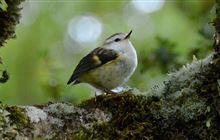Research shows most New Zealanders support pest control
Archived content: This media release was accurate on the date of publication.
Introduction
Initial findings from a social research project show that most New Zealanders support the need for pest control.Date: 15 November 2017
The Biological Heritage National Science Challenge project, led by a national team from the Department of Conservation, Manaaki Whenua Landcare Research, the University of Otago, the University of Auckland, and Victoria University of Wellington, has surveyed people’s perspectives of new and emerging methods of pest and predator control.
The project leader, Dr Edy MacDonald, from the Department of Conservation, says the survey involved more than 8,000 participants throughout the country and was designed to reveal the values underlying people's opinions.
Initial findings show that 61% of those interviewed are aware of the goal of New Zealand becoming Predator Free by the year 2050.
“We discovered that the majority of people (84%) agree that pest species are a significant conservation problem and only 14% think that enough pest control is being done,” Dr MacDonald says.
The study found that 85% agree that investment in pest control is beneficial for future generations.
The findings also showed that in relation to potential pest control technologies including gene drive 32% were comfortable, 18% felt it should never be used and the remaining 50% were undecided or wanting strong controls.
There was greater support for Trojan Female at 42% and a Species Specific Toxin which was at 52%.
“The findings are still to be published but show there are varying viewpoints and the nation has not made up its mind yet about new technologies,” Dr MacDonald says.
“New technologies, such as gene drives or trojan female techniques, are problematic and untested, but this research shows it’s important to keep discussing this issue openly to ensure that future pest control keeps up with public support and values.”
Inventors and scientists want to develop new technologies in the next few years, but new discoveries would need to be supported by the public as well as being safe and effective.
“Researchers wouldn’t want to waste money and years on research that can’t be used because there is no public mandate for this work. There is a lot at stake here, and we need to proceed with caution,” Dr MacDonald says.
Dr Andrea Byrom, Director of the Biological Heritage National Science Challenge, says she is excited by the survey results. “This is one of the largest surveys in New Zealand on the public’s perceptions of pest control technologies. The results will be informative, and will help shape our research programme to ensure that any new discoveries that may be deployed in future have public backing and support.”
The full findings of the research will be available in early 2018.
Background information
New Zealand is undertaking a major strategic re-alignment of its science and research activities under national priority areas (Science Challenges).
One such Challenge is New Zealand’s Biological Heritage. New Zealanders value highly our biological heritage – the natural, production and urban environments in which we live, work and recreate. These environments underpin our economy through primary industries and tourism, are integral to our sense of national identity, and have important cultural and recreational significance.
However, elements of our environment are under increasing pressure. Our Challenge aims to deliver science solutions that transform the way we respond to that pressure. Our aim is to protect and manage our native biodiversity, improve our biosecurity system, and enhance ecosystem resilience to global threats and pressures.
New Zealand's Biological Heritage website
Contact
For media enquiries contact:
Email: media@doc.govt.nz

